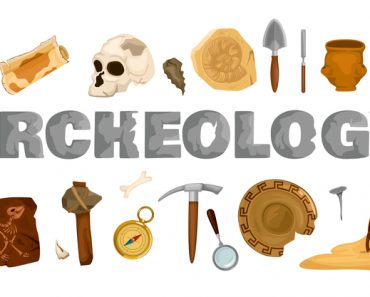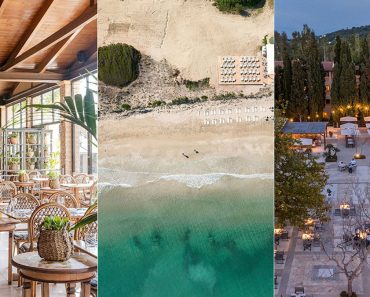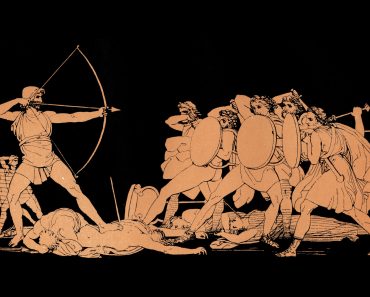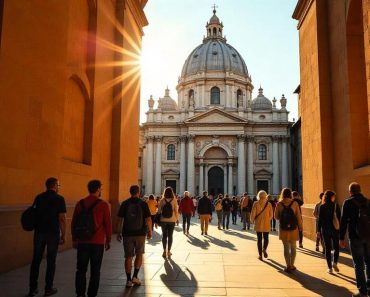A group of eight students from Boston University spent a month in Greece as part of the Greek Culture program, implemented in cooperation with the School of Philosophy of the National and Kapodistrian University of Athens and an initiative of Study in Greece, the national organization for the internationalization of Greek public universities. The summer school was not confined to the lecture halls, but unfolded the Greek experience in all its breadth – from the philosophy courses, to the paths of Messina and the view of Sounion.
From the history of Sounion, to the history of Sion, to the sounds of Sounion’s mountains and the Sounion skyline.
The students successfully completed the summer program, with the support and guidance of their accompanying instructor from Boston University, Kelly Polychroniou, having attended lectures by faculty members of the Philosophy Department, who were responsible for creating a complete program of study in ancient Greek culture and philosophy.
This short-term program is one of the fruits of the broader Greek-American cooperation in higher education, which has been growing rapidly in recent years, being a priority of both the American Embassy in Greece and the Ministry of Education, Religious Affairs, and Sports and Study in Greece. It is worth noting that Greece is among the 8 most popular destinations for US students, with Greece hosting over 6,000 students in study programs of all levels.
The participating students, all with different research interests and at different stages of their academic careers, were exposed to exciting stimuli and experiences. The detailed and lively guided tours of the various archaeological sites and museums by Professor of Archaeology Mr. Nikos Harokopos, the leisure excursions and in-depth lectures by their professors, the Mediterranean climate, and the Greek cuisine, for each and every one of the students, composed a complete experience.
Jackie Reynolds, a PhD candidate and assistant fellow guide for the program, is participating for the second time and stresses to protothema.gr that this year she is particularly proud of the program’s progress: “The fundamental goal of the program is to introduce students to the world of Greece, both ancient and modern. We have tried to make the participants’ experience as authentic as possible. In addition to the lectures, we visited historical sites and nearby islands so that they could form a complete picture of Greece today.”
Students had the opportunity to be taught by professors from the University of Athens, with special emphasis on philosophy and Modern Greek Language. One of the most striking features of the program was the effort to integrate the students into the Greek academic community, with joint classes with Greek students in the Philosophy course.
For Nick Constantini, a Philosophy and Classics student at Boston University, the experience was riveting: “It’s one thing to learn something in books or see a photograph and another to live it. In the Archaeological Museum of Athens, is the statue of Poseidon? Zeus? Bronze… it was a really powerful experience. It was as if everything ‘clicked’ inside me,” he says.
Caroline Foley, a Boston University graduate with a major in Classics and History, saw in the experience the “bridge” between past and present:
“It is important to make it clear that although this is a ‘dead’ language, there is a living legacy that flows from it. Don’t approach ancient Greece as something separate from modern reality.” The trip to Greece reinforced her ambition to pursue doctoral studies and teach ancient history and languages.
Even for students from completely different fields, like Evelyn McDonald, a third-year astronomy and physics student, the experience was unique:
“I was fascinated by philosophers… I felt it would be an amazing experience to take this opportunity to travel to Greece. I loved Athens – a modern city, but the antiquities were the most impressive thing I have seen so far.”
On the cultural side, the students travelled to important historical sites: Delphi, Sounion, Messene, Nafplio – a cycle of experiences that fleshed out what they had studied in theory.
The theory of what they had theorized in theory.
The importance of internationalization
.
The strategic nature of a well-designed academic programme can play a key role, not only in student exchange but also in the broader strengthening of international links and the global presence of the UCLF. According to Professor Dimitris Drossos, Dean of the School of Philosophy of the UoA, “Internationalisation is a demand in today’s university academic community. Because it opens up horizons for cooperation – in the humanities, in philosophy, in ethics, in foreign languages, it is an area in which we have a comparatively very high level of development.”
Although the humanities face challenges globally, the programme proves that knowledge is not limited to borders. “Students coming from America are living the dream. They are visiting a country that, in their history, is the country that laid the foundations of Western civilization,” the Dean stresses, to add: “We have been working with Boston University for about 5 years. Similarly, there are programs that our students can attend either in the US or in other countries through partnerships.”
The Boston Greek
The program has the stamp of Professor Kelly Polychroniou, head of the Modern Greek department at Boston University and the only Greek woman in the Classics department. She started this program some 13 years ago, and today, it continues to unite generations of students, researchers, and professors, with Greek culture and philosophy as a common language. Ms. Polychroniou is also an active teacher – the Modern Greek for Beginners course is her creation. Regarding the programme of the Summer School, she notes.
“As with the feats of Hercules, we are faced with a great number of challenges. There were several obstacles that we had to overcome to implement the program. Three years ago, I started working with Study in Greece. I was thrilled. They put us in touch with the University of Athens, where we would be working… I then had to contact the professors of Philosophy at Boston University to get the credits recognized for the participants. Specifically, during the five weeks of the program, which is 40 hours, to get 4 credits per course, which would be recognized by Boston University,” he explains. As he points out, “each of the participants has also received a scholarship from our Boston Department.” As for the collaboration with Study in Greece, she will say: “They are impeccable! We hope to continue working with Study in Greece as something bigger, maybe even a semester-long program.”
The value of the program for students
Through their participation in the Voyage into Greek Civilization program, students have not only had the opportunity to broaden their academic pursuits but are expected to act as multipliers in promoting Greece as an ideal destination for students, whether for short-term programs or entire undergraduate and graduate courses. They therefore act as active ambassadors of a living culture.
The farewell event
Boston University, the Department of Philosophy and the English-language BA Program in the Archaeology, History and Literature of Ancient Greece of the National and Kapodistrian University of Athens and Study in Greece, dedicated a farewell ceremony to the graduates of the Voyage into Greek Civilization summer program, during which participants received their certificates of completion.
Ask me anything
Explore related questions




 QuinnBrak:Pixabay.png-370x297.jpg)


